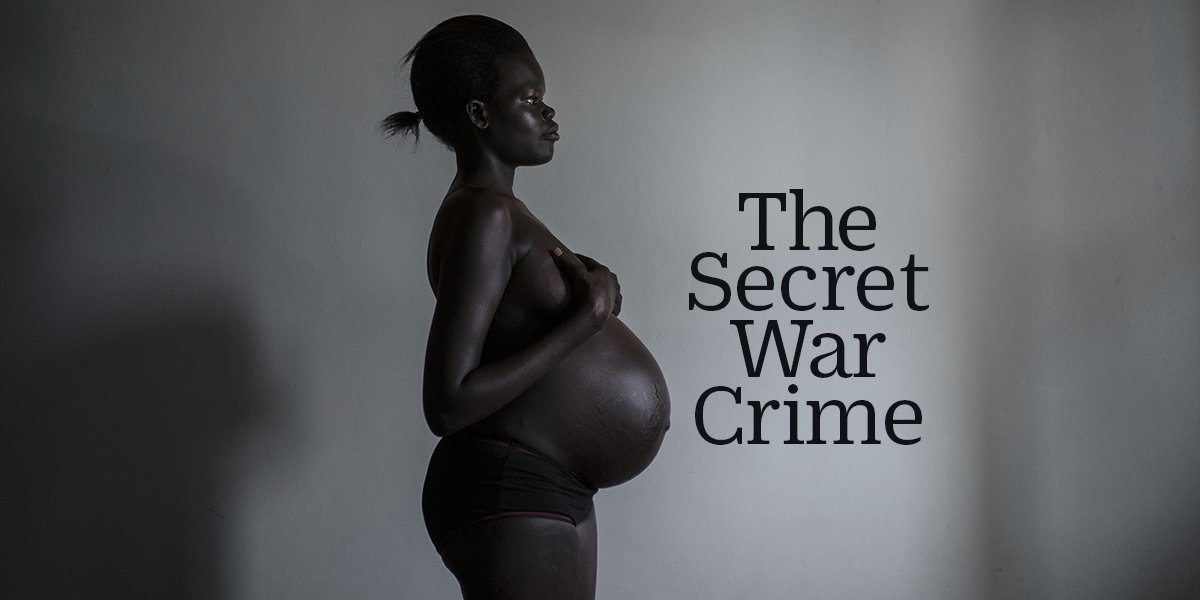
First they shot her husband.
Then the soldiers killed her two sons, ages 5 and 7. When the uniformed men yanked her daughter from her hands next, Mary didn’t think it could get any worse.
Mary and her family were members of the Nuer tribe in South Sudan, caught up in a vicious power struggle between the new country’s President Salva Kiir, a member of the Dinka tribe, and his Vice President, Riek Machar, a Nuer. Their war, fought largely along ethnic lines, has turned the northern part of the country into a wasteland. At least 50,000 people have been killed, according to the U.N., nearly 4 million face famine, and another 2.2 million have fled their homes, recounting tales of civilian slaughter, gratuitous torture and even forced cannibalism. Mary and her family were among the tens of thousands of civilians seeking refuge at a U.N. peacekeeping base in the northern city of Bentiu when they ran into Kiir’s forces on the road in June 2014.
The 27-year-old recounts what occurred next distantly, as if she were explaining something that happened to someone else. The soldiers told Mary that they considered the Nuers in the camps to be rebels, and that they killed her sons because they couldn’t risk letting them grow up to be fighters. “We don’t kill the women and the girls,” the soldiers told Mary. “They said they would only rape us. As if rape were different than death,” says Mary, speaking in a safe house in neighboring Uganda run by Make Way Partners, an American Christian organization that provides housing, medical care and schooling for South Sudanese orphans and victims of human trafficking. After the soldiers killed her husband and sons, five of them held her down and forced her to watch as three others raped her 10-year-old daughter. Her name was Nyalaat. When the men were done, Mary says, “I couldn’t even see my little girl anymore. I could only see blood.” Then the men took turns with Mary. Nyalaat died a few hours later. “I wanted to die too.”
Instead, Mary made it to a U.N. camp for civilians displaced by war. The conflict raged on, and soldiers—she’s not even sure from which army—were able to slip in to the camp through gaps in the fence and rape whichever women they could catch. “It happened to all of us: little girls, grandmothers. They didn’t care.” The rules were simple, says Mary, who asked that her full name not be used. “If you calm down when they are raping you, they won’t beat you. But if you resist, they will beat you, even so much to use the gun in you.”
Rape in war is as old as war itself. But the intimate nature of sexual assault means that the horrors often go undocumented, sanitized out of history books and glossed over in news accounts that focus on casualties and refugee numbers. Yet that mass rape is so common in wartime only makes it more corrosive. It spreads disease. Its stigma destroys families and breaks down society. It leaves unwanted children who serve as constant reminders of the worst day of their mother’s life. “Rape is a weapon even more powerful than a bomb or a bullet,” says Jeanna Mukuninwa, a 28-year-old woman from Shabunda, in the Democratic Republic of Congo. “At least with a bullet, you die. But if you have been raped, you appear to the community like someone who is cursed. After rape, no one will talk to you; no man will see you. It’s a living death.”